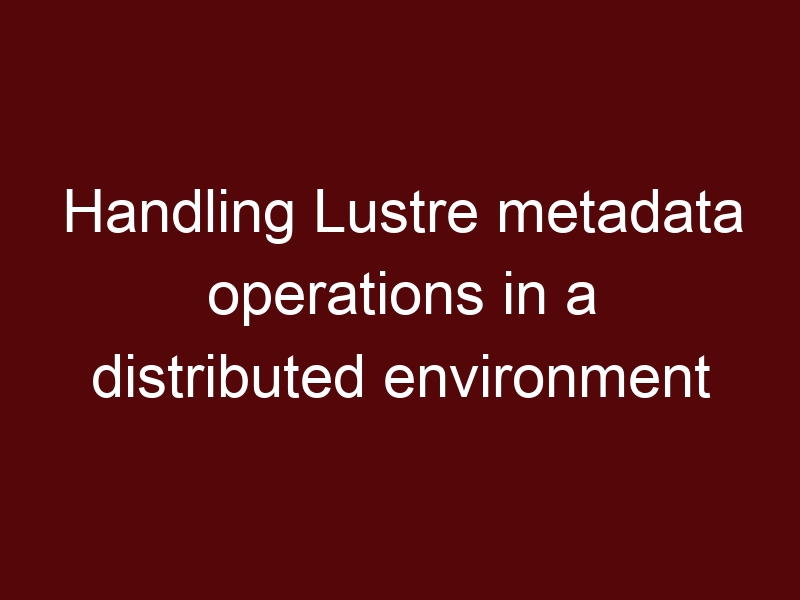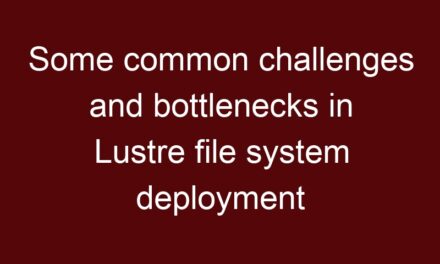Lustre handles metadata operations in a distributed environment through the use of Metadata Servers (MDS) and Distributed Lock Manager (DLM). The distributed architecture of Lustre ensures that metadata operations are efficiently managed and scaled across multiple MDSs to avoid bottlenecks and single points of failure. Here’s how Lustre handles metadata operations:
- Metadata Servers (MDS):
- Lustre employs one or more Metadata Servers (MDS) to manage file system metadata, such as directory structures, file attributes, and access control information. The number of MDSs can be configured based on the size of the Lustre file system and performance requirements.
- MDS nodes handle metadata operations initiated by client nodes. These operations include file and directory creation, deletion, renaming, and attribute changes. Client nodes communicate with the appropriate MDS based on the metadata distribution across the Lustre file system.
- Distributed Metadata Management:
- Lustre distributes metadata across multiple MDSs in a scalable and load-balanced manner. Each MDS manages a portion of the file system’s metadata, ensuring that no single MDS becomes a performance bottleneck.
- Directory hierarchies are distributed across MDSs, and directories can be moved between MDSs dynamically based on workload and load balancing requirements. This dynamic distribution optimizes the handling of metadata operations.
- Metadata Caching:
- Client nodes employ metadata caching to reduce the frequency of metadata operations that need to be sent to the MDS. When a client accesses a file or directory, the metadata is cached locally on the client node to minimize future metadata requests for the same data.
- The use of metadata caching helps reduce the load on the MDS nodes, speeds up file system operations, and improves overall system performance.
- Distributed Lock Manager (DLM):
- Lustre uses the Distributed Lock Manager (DLM) to coordinate access to shared files and directories across multiple client nodes and MDSs. Locks are used to prevent conflicts and maintain data consistency during concurrent read and write operations.
- The DLM manages shared and exclusive locks on file and directory metadata, ensuring that only one client can modify metadata at a time while allowing multiple clients to read metadata concurrently.
- High Availability and Redundancy:
- To provide fault tolerance and high availability for metadata, Lustre supports active-active configurations with multiple MDS nodes. If one MDS node fails, the remaining nodes take over its responsibilities, ensuring continuous metadata availability and operation.
By distributing metadata across multiple MDS nodes, leveraging caching mechanisms, and using the DLM for coordination, Lustre efficiently manages metadata operations in a distributed environment. This approach allows Lustre to scale to handle large numbers of files and directories while maintaining high performance for metadata-intensive workloads in high-performance computing and big data applications.





